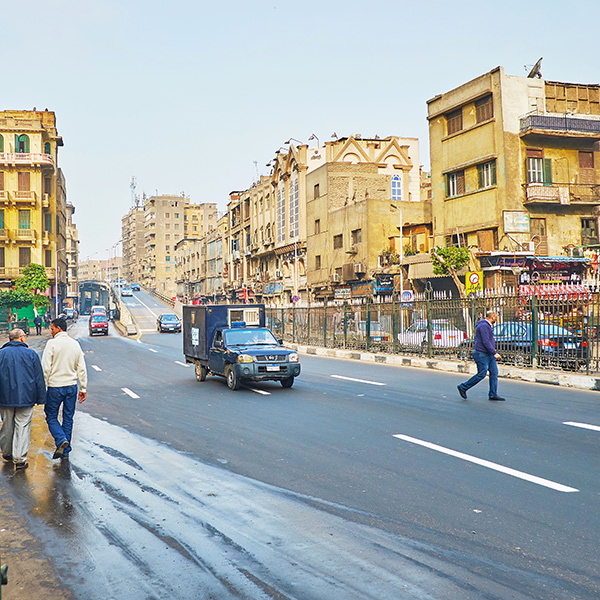Stories of Change

A street scene in Cairo. Photo used for illustrative purposes only.
A loving, supportive ally for a young refugee in Cairo
**TRIGGER WARNING: This story is about someone who survived torture as a child.
Yonas* was arrested twice when he was 13, swept up in official roundups at his school. After his second arrest, he was detained for two months. He was beaten and interrogated in prison. When he finally managed to escape, he fled the country.
He finally made it to Cairo, Egypt, where he approached St. Andrew’s Refugee Services for help. The organization, known as StARS, has lots of programs that support tens of thousands of refugees like Yonas. CWS funds much of their work.
When we first met Yonas, he was still only 15. He had physical and mental scars from his torture, including a diagnosis of PTSD and long-term memory defects.
A caseworker from our program that specifically cares for unaccompanied refugee children initially met with Yonas. Together, they made a plan for how Yonas could get the legal assistance and other care he needed.
In the last year, Yonas has made great progress. Our team helped make sure he had safe and stable housing, access to health services and information about his options for continuing his education. We made sure that Yonas knew his rights and had the information he needed to make decisions every step of the way. Plus, the legal aid that the StARS team provided helped Yonas to file a stronger claim for refugee status. As a child, he wasn’t ready to articulate his refugee claim in a legal setting, so the StARS team went with him to his first interview and helped him with his paperwork. This increases the likelihood that he will be recognized as a refugee and eligible for more help and potentially even resettlement.
Yonas will continue to get the counseling and care that StARS can provide until he’s old enough to join the programs for adults or until he chooses not to continue. Despite his dark past, his future looks bright.
*This is a pseudonym, used to protect the identity of a refugee child.
